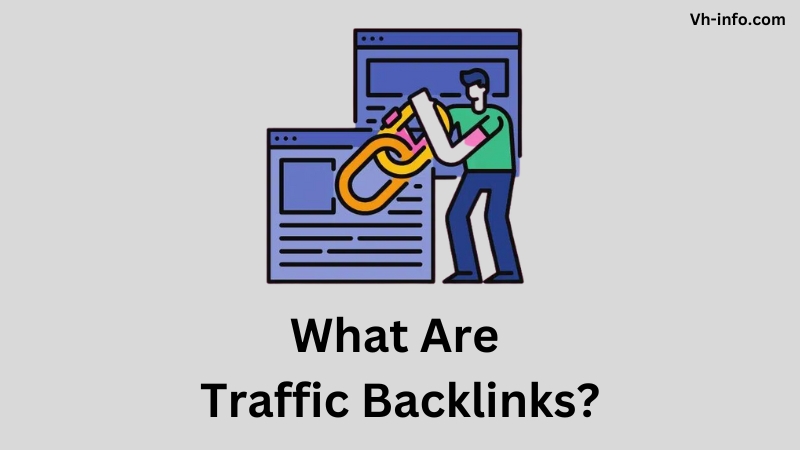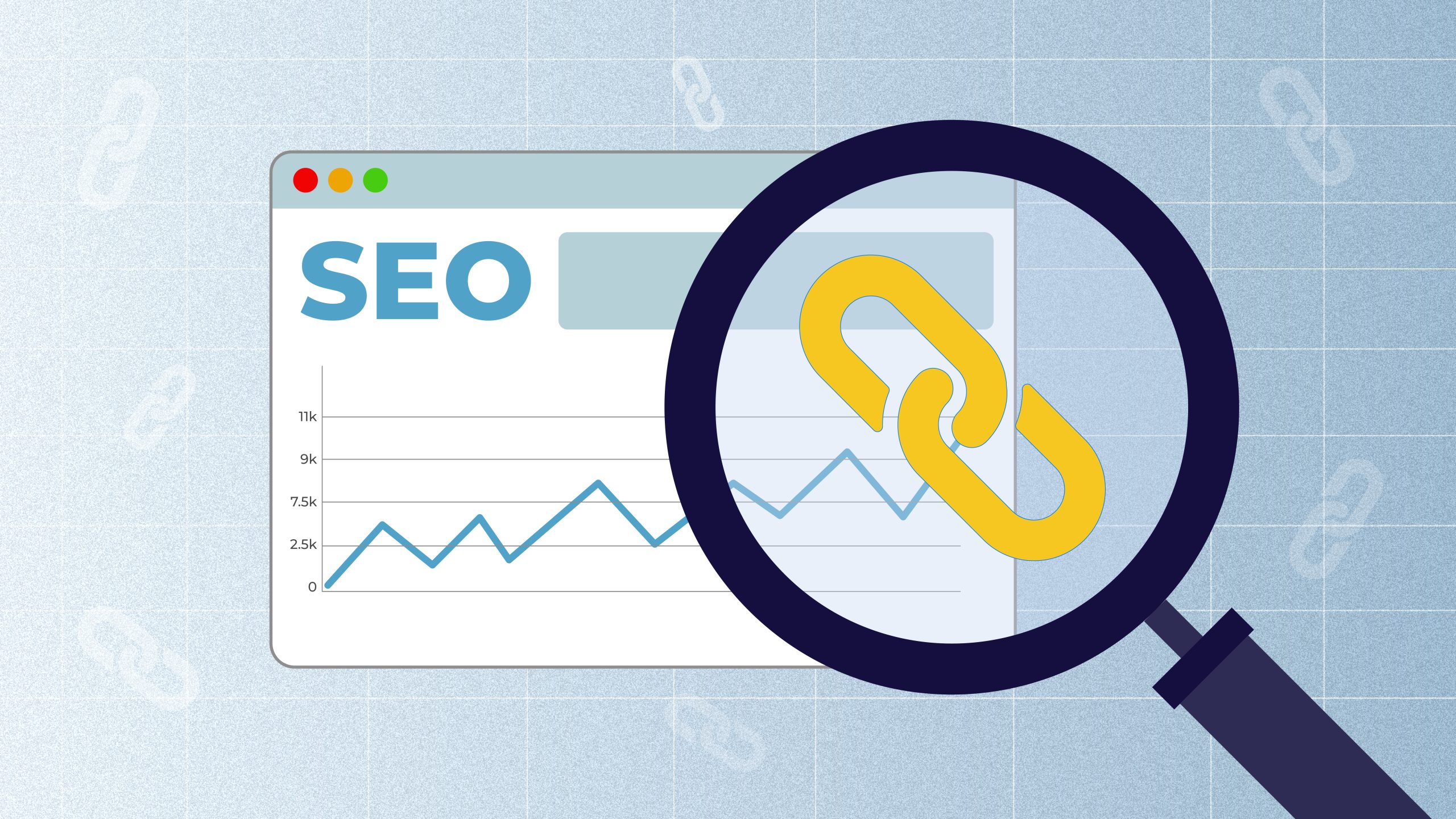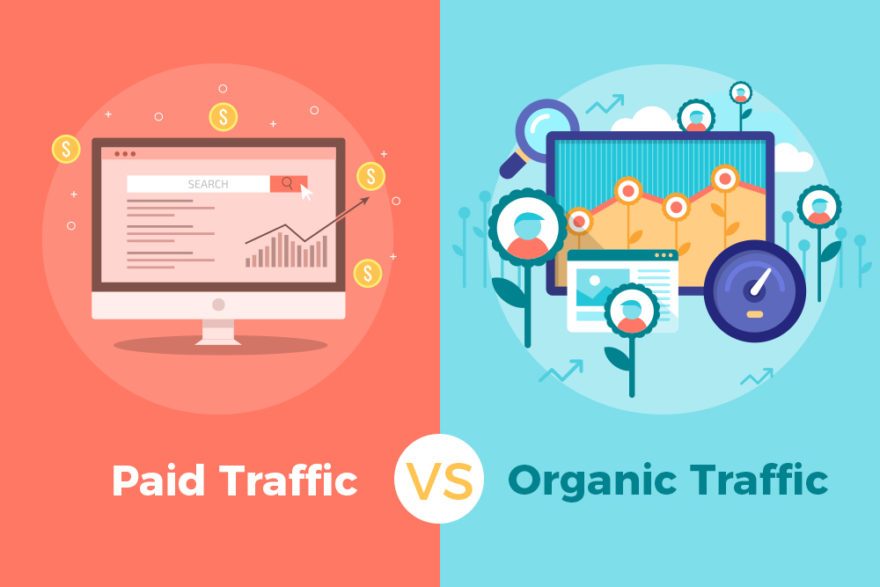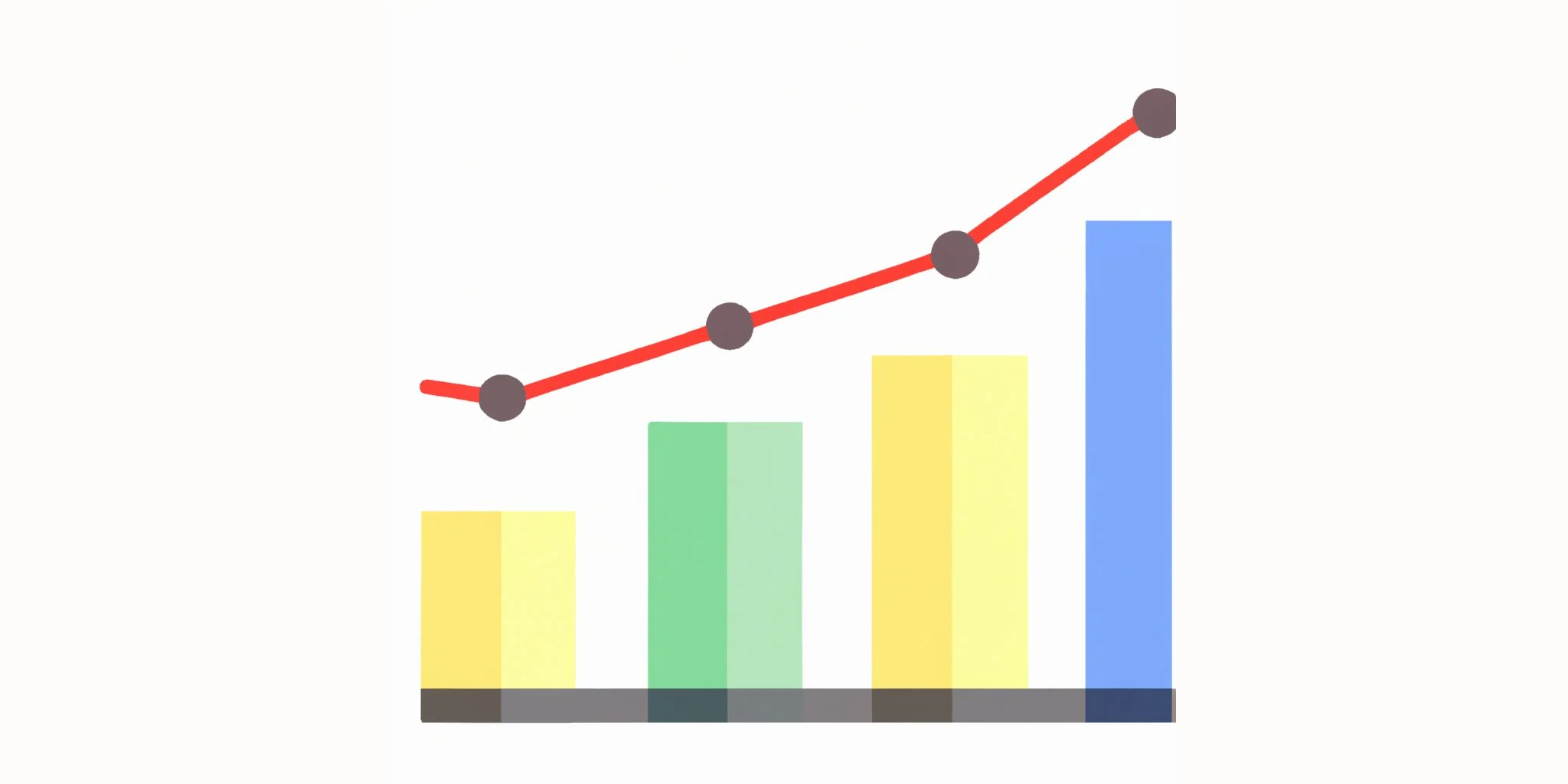Are you looking to drive more organic traffic to your SaaS website?
One of the most effective ways to improve your search engine rankings and attract targeted visitors is through high-quality traffic backlinks.
At VH-info, we specialize in helping SaaS companies like yours build authoritative backlinks that make a real impact on your online visibility and bottom line.
In this comprehensive guide, we’ll dive deep into the world of traffic backlinks. We’ll explain what they are, how they differ from other types of backlinks, and why they matter for SEO.
Plus, we’ll share actionable tips and strategies for acquiring high-quality traffic backlinks and monitoring their impact on your website’s performance. Let’s get started with the next step!
What Are Traffic Backlinks?

Traffic backlinks are links from other websites that not only pass authority to your site but also drive referral traffic. These are typically contextual links within the body content of relevant, high-quality web pages. When users click on these website links, they are directed to your website, bringing in targeted visitors who are more likely to engage with your content and convert into customers.
How Do Traffic Backlinks Differ From Other Types of Backlinks?
Not all backlinks are created equal. While any link from an external website technically counts as a backlink, not all of them carry the same weight or provide the same benefits. Traffic backlinks stand out from the crowd for a few key reasons:
- Relevance: Traffic backlinks come from websites and pages that are closely related to your niche or industry. This relevance signals to search engines that your content is a valuable resource for users searching for specific topics.
- Authority: High-quality traffic backlinks originate from reputable, authoritative domains that have built up trust with search engines over time. A single link from a high-authority website can carry more weight than dozens of links from low-quality or spammy sites.
- Referral Traffic: As the name suggests, traffic backlinks drive actual referral traffic to your website. These visitors are more likely to be interested in your content and offerings, leading to higher engagement, lower bounce rates, and better conversion potential.
Why Do Traffic Backlinks Matter For SEO?
Traffic backlinks are an important component of any effective SEO strategy. Here’s why:
- Improved Search Rankings: Backlinks are one of the top ranking factors considered by Google and other search engines. The more high-quality backlinks pointing to your site, the higher you’re likely to rank for relevant keywords and phrases.
- Increased Referral Traffic: Beyond boosting your search rankings, traffic backlinks also drive targeted referral traffic to your website. This can lead to more pageviews, longer session durations, and higher conversion rates.
- Faster Indexing: When authoritative websites link to your content, it signals to search engines that your pages are valuable and worth indexing. This can help your new content get discovered and indexed faster, leading to quicker visibility in search results.
- Brand Exposure: Traffic backlinks can introduce your brand to new audiences and help establish your authority in your industry. When your links appear on trusted, relevant websites, it lends credibility to your business and can lead to increased brand awareness and recognition.
How Traffic Backlinks Impact Search Engine Rankings?
Search engines, such as Google, use algorithms to rank web pages in search results. The specifics are more or less a secret, but none the less backlinks are super important.
Here’s how traffic backlinks can impact your search engine rankings:
- PageRank: Google’s original algorithm, PageRank, was built on the idea that links act as “votes” of confidence. The more votes (i.e., backlinks) a page has, the higher its PageRank and the better it will perform in search results. Traffic backlinks from authoritative, relevant websites pass more PageRank and carry more weight in the algorithm.
- Anchor Text: The anchor text used in traffic backlinks provides context and helps search engines understand what your page is about. When the anchor text includes relevant keywords, it can help your page rank higher for those specific terms.
- Diversity: Having a diverse backlink profile with links from various authoritative domains is better than having many links from a single domain. Traffic backlinks help diversify your link profile and show search engines that your content is widely valued and referenced across the web.
- Freshness: Search engines favor fresh, up-to-date content. Earning new traffic backlinks over time signals to Google that your content is still relevant and valuable, which can help maintain or improve your search rankings.
How to Get High-Quality Traffic Backlinks?

Now that you understand the importance of traffic backlinks, let’s explore some effective strategies for acquiring them:
- Create Link-Worthy Content: The foundation of any successful link-building campaign is having content worth linking to. Focus on creating in-depth, informative, and engaging content that provides value to your target audience. Examples include original research, comprehensive guides, interactive tools, and thought-provoking opinion pieces.
- Guest Blogging: Contributing high-quality guest posts to relevant, authoritative websites in your industry is a great way to build traffic backlinks. Look for blogs that accept guest contributions and pitch topics that align with their audience’s interests. Be sure to include a natural, contextual link back to your website within the body of your post.
- Broken Link Building: Identify broken links on relevant websites and reach out to the site owners to suggest your content as a replacement. This tactic helps website owners fix their broken links while providing you with a valuable traffic backlink opportunity.
- Skyscraper Technique: Find popular, link-worthy content in your niche and create an even better version. This could involve making the content more up-to-date, comprehensive, or visually appealing. Then, reach out to websites that link to the original content and encourage them to link to your improved version instead.
- Infographics: Visual content like infographics can be highly effective for earning traffic backlinks. Create informative, visually compelling infographics on topics relevant to your industry and share them with bloggers and websites in your niche. Many will be happy to feature your infographic on their site with a link back to the source.
- HARO (Help a Reporter Out): Sign up for HARO and monitor journalist requests related to your industry. When you find a relevant query, provide a helpful, insightful response and include a link back to your website. If the journalist uses your quote in their article, you’ll earn a high-quality traffic backlink from a trusted media outlet.
Analyzing Your Traffic Backlink Profile

Regularly monitoring and analyzing your backlink profile is essential for maintaining a healthy, effective link-building strategy.
Here are some key tools and metrics to track:
Tools For Monitoring and Analyzing Your Backlinks
- Google Search Console: This free tool from Google provides valuable insights into your website’s search performance, including your backlink profile. Use the “Links” report to see which sites are linking to your pages and which pages are receiving the most links.
- Ahrefs: Ahrefs is a powerful SEO tool that offers extensive backlink analysis features. With Ahrefs, you can see your total number of backlinks, referring domains, anchor text distribution, and more. You can also use the tool to analyze your competitors’ backlink profiles and identify new link-building opportunities.
- SEMrush: Another popular SEO tool, SEMrush provides detailed backlink analytics and reporting. Use the “Backlink Analytics” tool to monitor your backlink profile growth over time, identify your most valuable links, and track your competitors’ link-building efforts.
Metrics to Track (Referring Domains, Organic Traffic, Etc.)
- Referring Domains: The number of unique domains linking to your website. A higher number of referring domains generally indicates a more diverse and authoritative backlink profile.
- Organic Traffic: Monitor your website’s organic traffic using tools like Google Analytics. Look for increases in traffic from specific referring domains to gauge the impact of your traffic backlinks.
- Keyword Rankings: Track your rankings for target keywords using tools like Google Search Console or Ahrefs. As you build more high-quality traffic backlinks, you should see improvements in your search rankings over time.
- Domain Authority (DA) and Page Authority (PA): Developed by Moz, these metrics predict how well a website or web page will rank in search results. Higher DA and PA scores indicate a stronger, more authoritative backlink profile.
How to Identify Toxic or Low-Quality Backlinks?
Not all backlinks are beneficial. Some low-quality or spammy links can harm your website’s SEO performance.
Here’s how to identify and deal with toxic backlinks:
- Look for sudden spikes in your total number of backlinks, especially from low-quality or irrelevant domains.
- Check for links from known link farms, private blog networks (PBNs), or other spammy websites.
- Monitor your anchor text distribution. An unnatural concentration of exact-match or keyword-rich anchor text can be a red flag for search engines.
If you identify toxic backlinks pointing to your site, you can use Google’s Disavow Tool to ask search engines to ignore those links. Be cautious when using this tool, as disavowing valuable links can harm your SEO performance.
Are There Any Risks Associated With Using Traffic Backlinks For SEO Purposes?
While high-quality traffic backlinks are a valuable asset for any SEO strategy, there are some potential risks to be aware of:
- Link Buying: Purchasing backlinks is against Google’s Webmaster Guidelines and can result in manual penalties or algorithmic devaluations. Avoid any link schemes or paid link exchanges.
- Overoptimization: Building too many backlinks too quickly, especially from low-quality or irrelevant sources, can trigger search engine algorithms and lead to ranking penalties. Focus on earning backlinks naturally through high-quality content and outreach.
- Anchor Text Manipulation: Using the same match or keyword-rich anchor text in all your backlinks can appear unnatural to search engines. Vary your anchor text and use natural, descriptive phrases to avoid raising red flags.
- Negative SEO: In rare cases, competitors may attempt to harm your website’s rankings by pointing spammy or low-quality links to your site. Regularly monitor your backlink profile and use the Google Disavow Tool if necessary to mitigate the impact of negative SEO attacks.
What Are The Differences Between Organic and Paid Traffic Backlinks?

Organic traffic backlinks are earned naturally through the creation of high-quality, link-worthy content and outreach efforts.
These links are given freely by other websites that find your content valuable and want to reference it. Organic backlinks are the most valuable for SEO, as they signal to search engines that your content is trusted and authoritative in search engine results.
Paid traffic backlinks, on the other hand, are acquired through financial transactions. This can include buying links directly, participating in link exchanges, or sponsored content placements. Paid links are generally considered less valuable for SEO, as they do not reflect the true merit or authority of your content.
However, utilizing paid strategies such as content marketing can also drive organic traffic and improve your website’s SEO. Buying links is against Google’s guidelines and can lead to penalties if detected.
Which Strategies Are The Most Effective in Acquiring Traffic Backlinks From Authoritative Sources?
To acquire high-quality traffic backlinks from authoritative sources, focus on these effective strategies:
- Create Exceptional Content: Develop in-depth, informative, and engaging content that provides genuine value to your target audience. When your content stands out as a comprehensive resource, authoritative websites will be more likely to link to it naturally.
- Guest Posting: Contribute high-quality guest posts to reputable websites in your industry. Include natural, contextual links back to your content within the body of your posts. This exposes your brand to new audiences and earns valuable traffic backlinks from authoritative domains.
- Broken Link Building: Identify broken links on relevant, high-authority websites and reach out to the site owners to suggest your content as a replacement. This tactic helps website owners improve their user experience while providing you with a valuable link-building opportunity.
- Infographic Promotion: Create informative, visually appealing infographics on topics relevant to your niche. Reach out to bloggers and websites in your industry and offer to share your infographic with their audience. Many will be happy to feature your content with a link back to your site.
- HARO and Journalist Outreach: Monitor journalist requests on platforms like HARO (Help a Reporter Out) and respond to relevant queries with helpful, insightful comments. If your quote is used in the final article, you’ll earn a high-quality traffic backlink from a trusted media outlet.
- Skyscraper Technique: Identify popular, link-worthy content in your niche and create an even better version. Reach out to websites that linked to the original content and encourage them to link to your improved resource instead.
How to Monitor and Analyze the Impact of Traffic Backlinks on Website Performance Metrics?

To effectively monitor and analyze the impact of your traffic backlinks, use a combination of web analytics and SEO tools:
- Google Analytics: Use Google Analytics to track your website’s traffic sources, referral paths, and user engagement metrics. Look for increases in referral traffic from specific domains where you’ve built backlinks and analyze the behavior of those users on your site.
- Google Search Console: Monitor your website’s search performance using Google Search Console. Track your keyword rankings, click-through rates, and organic traffic growth over time. As you build more high-quality traffic backlinks, you should see improvements in these metrics.
- Ahrefs or SEMrush: Use comprehensive SEO tools like Ahrefs or SEMrush to analyze your backlink profile in-depth. Track your total number of backlinks, referring domains, anchor text distribution, and domain authority. Identify your most valuable links and monitor your competitors’ link-building efforts.
- Referral Traffic Analysis: Dive deeper into your referral traffic data in Google Analytics. Analyze the bounce rates, time on site, and conversion rates of users coming from specific referring domains. High engagement and conversion rates indicate that your traffic backlinks are driving valuable, targeted traffic.
- Keyword Rankings: Monitor your rankings for target keywords using tools like Google Search Console, Ahrefs, or SEMrush. As you acquire more high-quality traffic backlinks, you should see your rankings improve for relevant search terms. Higher rankings typically lead to increased organic traffic.
FAQ’s:
What’s The Difference Between Traffic Backlinks and Regular Backlinks?
Traffic backlinks are links that not only pass authority to your website but also drive referral traffic from the linking page. Regular backlinks, on the other hand, may pass authority but don’t necessarily drive significant traffic. Traffic backlinks are generally more valuable, as they provide both SEO and direct traffic benefits and improve your website’s authority.
How Many Traffic Backlinks Do I Need to Rank Well?
There is no magic number of traffic backlinks needed to rank well in search results. The quality of backlinks often matters more than quantity. Focus on building relationships and providing value to both your audience and potential linkers. This approach not only helps in acquiring backlinks from different websites, but also drives targeted traffic to your website, making it a good match for a particular topic.
Can Low-Quality or Spammy Traffic Backlinks Harm a Website’s SEO Efforts?
Yes, low-quality or spammy backlinks can harm your website’s SEO performance. Links from irrelevant, low-authority or penalized websites can trigger search engine algorithms and lead to ranking penalties. Always prioritize quality over quantity when building backlinks and regularly monitor your link profile for any suspicious or spammy links.
Are Traffic Backlinks a Google Ranking Factor?
Yes, backlinks are one of the top ranking factors considered by Google’s search algorithm. High-quality traffic backlinks from authoritative, relevant websites can significantly improve your search rankings for target keywords.
Can I Buy Traffic Backlinks?
While it may be tempting to buy traffic backlinks as a shortcut, it’s strongly advised against. Buying links violates Google’s Webmaster Guidelines and can result in severe penalties, including a significant drop in rankings or even complete removal from search results.
How Long Does it Take to See SEO Results From Traffic Backlinks?
The timeline for seeing SEO results from traffic backlinks varies depending on factors such as the competitiveness of your niche, the quality and relevance of the acquired links, and the overall strength of your website. In general, it can take several weeks to a few months to start seeing noticeable improvements in organic traffic and rankings after acquiring high-quality traffic backlinks.
Conclusion
Traffic backlinks are a crucial component of a successful SEO strategy, driving referral traffic and improving search engine rankings.
To maximize the impact of traffic backlinks, focus on acquiring high-quality, relevant links from authoritative sources through ethical, white-hat techniques.
Create link-worthy content, engage in guest blogging, and leverage broken link-building to attract valuable backlinks. Regularly monitor your backlink profile using SEO tools, and track key metrics to gauge the effectiveness of your efforts.
Invest in a sustainable, quality-focused link-building strategy to position your website as an industry authority using great content, backlink building, keyword research and boost long-term organic search traffic growth.



